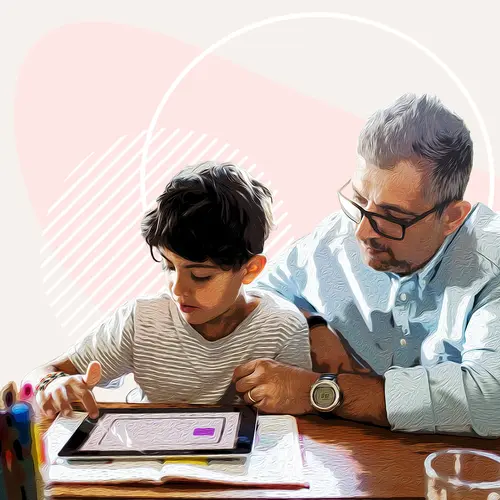You may have heard of "brain training" to boost intelligence or memory. If your child has attention deficit hyperactivity disorder (ADHD), there's a type of brain training some researchers think may improve focus and help other ADHD symptoms too. It's called neurofeedback or EEG biofeedback.
Electroencephalograph (EEG) sensors are placed on the scalp, often using headgear that looks like a bike helmet. The EEG sensors monitor brain waves. It's painless, and the sensors don't go into the scalp or head.
While your child wears the sensors, they'll play a computer game that they control using only their brain. For example, they may make a fish move through the sea while other ocean creatures go by. When the EEG sensors pick up brain waves that show your child is concentrating, they trigger a "reward" signal or sound. For example, a bell may sound, or the fish your child is controlling may dive deep into the water.
The idea is that as your child does this, they learn how it feels when they are concentrating. This might give them more control to "create" brainwaves that can reduce ADHD symptoms.
Does It Work?
Several studies, including a review of five different ones that involved a total of more than 250 children, show that neurofeedback can help with ADHD symptoms. But other research doesn't back that up, instead suggesting that it won't lead to big gains for kids with ADHD. So it seems more research is needed.
Naomi Steiner, MD, a developmental and behavioral pediatrician at Boston Medical Center, studies neurofeedback in children with ADHD and uses it in her pediatric practice. "Those circuits improve your child's ability to 'switch on' her brain, and focus for longer periods of time," she says.
"[During training], your child is forming new neuronal connections -- that is, new circuits in the brain."
However, Mayra Mendez, PhD, a psychologist and program coordinator at Providence Saint John's Child and Family Development Center in Santa Monica, California, treats people with ADHD and doesn't use it.
"Biofeedback [which includes neurofeedback] has been around a very long time and has evidence-based backing for conditions such as anxiety and depression," says Mendez. "But [there's not enough evidence] to use neurofeedback for ADHD yet."
But Steiner says neurofeedback may be an option for children with ADHD who don't respond to medication, or who may have strong side effects with medication. "Neurofeedback has no negative side effects," she says.
Keep in Mind
If you're thinking about neurofeedback for yourself or your child:
- There's no need to stop medication. You can use it if you're using ADHD medication or if you're not.
- It takes time. It involves several weekly visits for several months. "I encourage parents to think about when they and their children can commit. For many families, summer vacation is the ideal time because they can make it a priority," says Steiner.
- It's not always covered by insurance. Your insurance company and the psychologist or physician who is treating your child's ADHD can give you information about coverage.
- It requires a specialist. Psychologists, nurses, physicians, and other trained therapists may practice neurofeedback.
- It isn't for everyone. Only you can decide if it may be a good option for you or your child.

